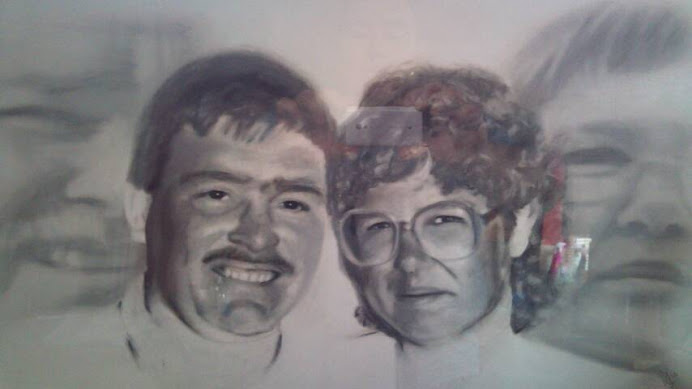Of course the
Colonisation of Wales did not start with the English incursion into the country. The
Romans colonised Wales long before the English. Historically,
Wales was believed to be a military occupation zone. The Roman Villas that represented long term gain and lifestyle choice through farming and trade were believed to have been restricted to
South Wales and England. That is until recently, when Archaeologists unearthed a Roman Villa at
Abermagwr near
Aberystwyth in the County of
Ceredigion.
The excavation has shown that the owners used coins and imported pottery from afar afield as “
Oxfordshire, Dorset and Northampton” (The Cambrian News p.4 22 July 2010). This was an established Roman Villa dated late 200AD early 300AD and is evidence of
Roman activity in this part of
Wales for some time beyond the previous known date of 130AD when the
Roman Fort at Trawsgoed also in the County of
Ceredigion was abandoned. The newspaper article goes on to make an interesting observation about the name ‘
Abermagwr’. We are informed that the word ‘Magwr’ in
Welsh means ‘ruined homestead’. So the
Welsh name implies a memory of a building on the site, long before the modern hamlet was established.
With all of this ‘Romanesque’ activity in the County coming to light; the phrase “what did the Romans ever do for us?” springs to mind. Those of you who know your Monty Python will also know where that phrase comes from. Plus of course there is a nice link to me and to Ceredigion in respect of that particular film. My good friend Douglas Rumsey and I were desperate to see the film, and had read the reviews that mentioned colossal crowds. So we camped out at the ABC Cinema in Newport, South Wales and waited for several hours. Whiling away the time sat on the kerb and drinking the odd can of beer. As the door to the cinema opened for the Newport premier; we were the only ones waiting. Well, it could have been worse as this was 1979, and if I had been living in
Ceredigion then I would have had to have waited another 30 years to have watched that film in the Cinema. The film ‘the Life of Brian’ was banned in
Aberystwyth.
Some people regarded the film as about Christ and Christianity. For me the film was about group dynamics. Insider and outsider groups as explained by
Norbert Elias, and the interaction between groups. Brian takes on the mantle to fight for the freedom of the Jews from the
Romans. The problem being that there are many groups with the same intent, but none will work with the others as a cohesive force. The film is as much about group dynamics and insurgency as it is about Religion. The ban in
Aberystwyth lasted for 30 years until the delightful Sue Jones-Davies (the lady on the Cross) became Mayor of
Aberystwyth and had the ban overturned.
I missed the screening in the Arts Centre in
Aberystwyth, simply because I did not know of the event until the last minute and by then all of the tickets had been sold. But I wonder how many of those that attended the screening where true fans? Would they have sat on a cold pavement for many hours waiting to see their heroes? Did they own a copy of the tape that was played for hours in the car cassette player?
No, I’m not bitter; I just want to know what did the Romans ever do for us?
 Just in case you thought that I had moved on from the situation faced by Ms Sakine Mohammadie Ashtiani, as I Blog about Human Rights Racism and the Colonisation of Wales and Africa. I'm sorry to disappoint you, but some things are simply too important. Regular readers will accept that the Blog threads will not seamlessly connect. Hey ho, that's insignificant compared to standing up for what you believe in.
Just in case you thought that I had moved on from the situation faced by Ms Sakine Mohammadie Ashtiani, as I Blog about Human Rights Racism and the Colonisation of Wales and Africa. I'm sorry to disappoint you, but some things are simply too important. Regular readers will accept that the Blog threads will not seamlessly connect. Hey ho, that's insignificant compared to standing up for what you believe in. 




